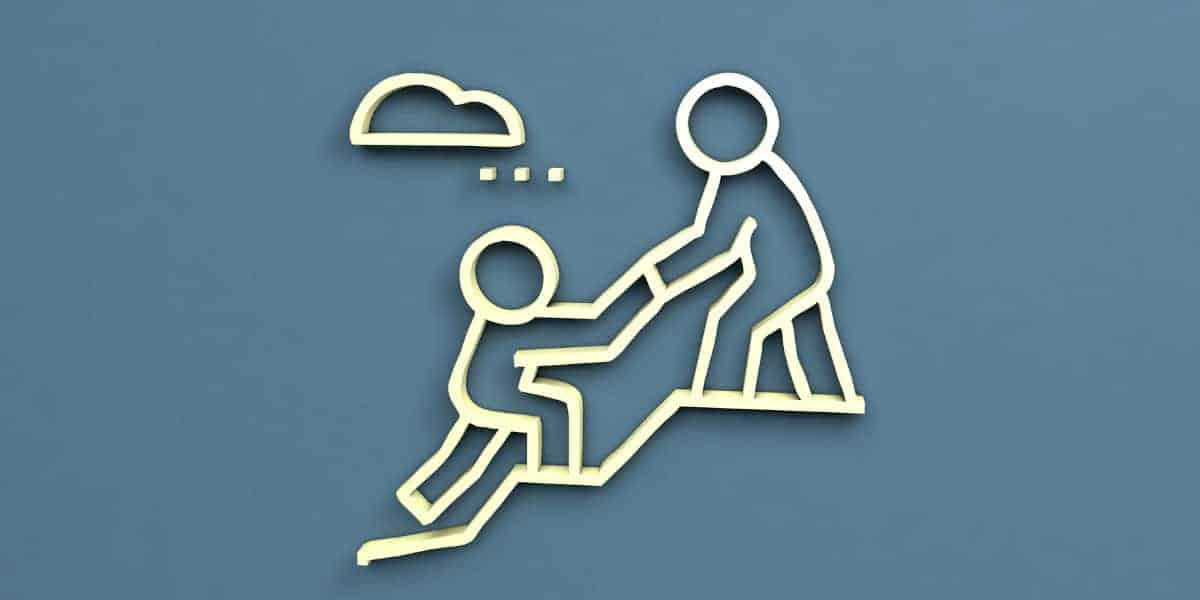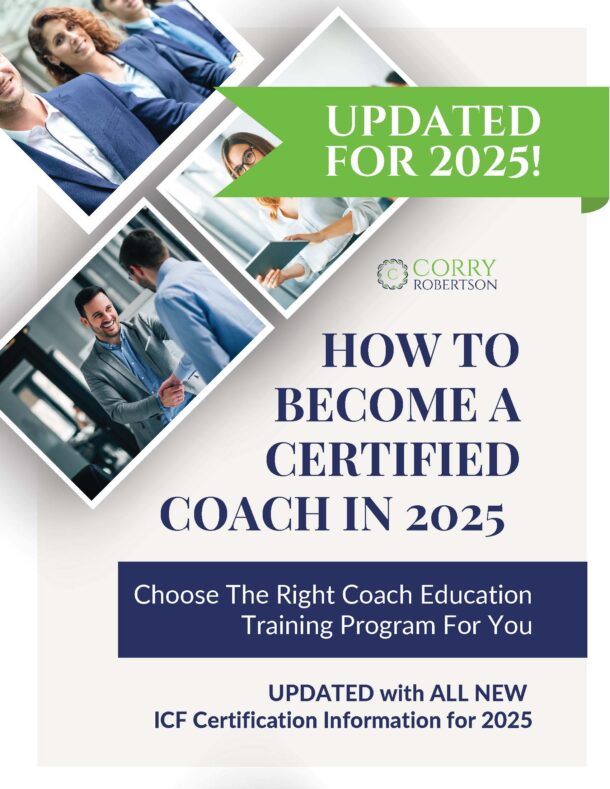After you’ve been coaching for a while, you’re ready to level up your certification to the highest professional level. As described by the International Coach Federation, a Master Certified Coach, or MCC is one who can help their clients embark on self-discovery and leverage their competencies into their desired goals.
An MCC is highly trained in the ICF’s Code of Ethics, Core Competencies, and well-refined coaching techniques. If you’d like to master your coaching craft, read on to learn how to achieve this prestigious credential.
What is an ICF MCC Certification?
MCC, or Master Certified Coach, is a credential offered by the International Coach Federation, or ICF. The ICF offers 3 levels of credentialing, and the MCC (Master Certified Coach) is the final level, preceded by the first level which is the ACC (Associate Certified Coach) and then the second level, the PCC (Professional Certified Coach).
What is a coaching credential?
A coaching credential is an attestation about your ability made by a third party who is qualified to do so, in this case, the International Coaching Federation, or ICF. The word credential is also often used to mean the official designation such as the ACC, PCC, or MCC you put after your name.

How is an ICF MCC coach different from an ACC or PCC coach?
According to the ICF, there are only currently 1,074 MCCs in the world — and for good reason. This is a truly amazing level of coaching. MCCs have dedicated their lives to coaching. They are uniquely qualified to dig beneath a client’s surface-level concerns and unearth their true potential.
As described here, ACC-level coaching tends to focus on the “what,” i.e. “What is the problem that needs fixing?” So, discovery takes place on a surface level, and the coach helps the client identify their next steps. PCC-level coaching tends to include some “what” but places more emphasis on who is being coached, the whole person, so the dialogue starts with the problem and then goes deeper into self-discovery.
By contrast, by the time the coach is at the MCC level they are able to fully focus on coaching the “whole person”. The coach trusts that by letting go of digging away at the “what” of the problem, what needs to be done after the session will emerge naturally.
A major distinction that sets MCCs apart is their ability to be curious beyond the first issue that the client brings up. Their discovery questions evoke awareness and facilitate the client’s growth at that human level rather than the surface level of the problem.
At the master level, the coach is ‘ego-less’ and so at ease with their coaching skill that they are no longer preoccupied with the need to follow the coaching conversation model or demonstrate their competencies.
How do I become an ICF MCC coach?
The ICF does not use the term ‘master’ lightly. To qualify as an MCC, a coach must exceed an impressive 200 hours of coach-specific training and hold a Professional Certified Coach (PCC) certification.
They also invest in 10 hours of coaching with a mentor who is an MCC in good standing. These hours are separate from those you take to pursue a previous ICF credential application.
Most notably, you must log a minimum of 2,500 hours (2,200 paid) of coaching experience with at least 35 clients, following the start of your coach-specific training. Then, you submit a performance evaluation that includes two audio recordings and written transcripts of coaching sessions.
Unlike the ACC Credential and the PCC credential where you can choose from the ACTP, ACSTH, or Portfolio path, there is only one application path for the Master Certified Coach.

What skills does the MCC have?
The MCC uses dialogue as a mode of compassionate inquiry for the benefit of the client’s self-knowledge, not as an interrogation about the elements of a problem that needs a solution.
It can be hard for new coaches to let go of the need to be seen as an expert who has great advice to give. The master coach has completely let go of this need. The MCC does not give the client advice or tell the client what they should do. The MCC knows how to share information and observation without attachment, allowing their client to unlock their own competencies and feel empowered to pursue their goals.
In short, the MCC does not push their agenda; they keep the focus on their clients. Their egos won’t be bruised if the client doesn’t pick up what the coach has offered. The master coach knows how to hold space for the client to acknowledge and absorb their most valuable observations — or dismiss what does not feel valuable in the moment.
The MCC can not only notice when something has changed for the client, whether it be through tone of voice, body language, or an energy shift, but also can reflect it to them without judgment and in a way that adds value and meaning to the conversation. This leads to the client’s discovery process.
It takes a true master to share what they see without needing to be right. Masters do not need their clients to walk away with a revelation during the conversation. Instead, the MCC coach asks their client to reflect on what is coming up for them, what they are learning, and what is next for them. Thanks to the new awareness that the MCC has helped cultivate, the client is better able to pursue their next steps.

How much time and money does it take to become credentialed as an ICF MCC coach?
Unlike the ACC and PCC credentials, where you can choose from the ACTP, ACSTH or Portfolio paths, there is only one application path for the Master Certified Coach.
Pricing for MCC Credential Application:
- ICF Members: $575 USD
- Non-members: $775 USD
Estimated Timeline for Review of Application:
18 weeks
Conclusion
Although the MCC is the highest level of ICF certification, many PCCs do coach at the level of mastery even if they don’t hold the MCC credential. I for one am a PCC and I am devoted to practicing at the master level in every coaching conversation I hold.
In the 17 years since I started my coach training, I have invested in far more than the 200 hours needed for my MCC. I work with the greatest trainers and mentors in the world to help me be able to deliver the highest level of value to my executive clients and the students whom I train to become coaches. Many PCCs are like me.
Going for the MCC is a personal choice. It is up to you whether you would like to pursue the MCC if it will suit your industry and coaching style. Regardless of the credential level, as coaches, we aspire to deliver mastery as professionals and with each and every coaching conversation.
Are you interested in learning more about coaching certification and training programs? Have a look at The Coaching Academy for Leaders, our ICF accredited coach training program.
_____________
Did you enjoy this article? You might also like:
How To Become A Certified Coach: Understanding ICF Credentials and Certification Programs
What is ICF PCC Certification? The Path To Becoming A Professional Certified Coach.
How To Become An Executive Coach: Everything You Need To Know





0 Comments